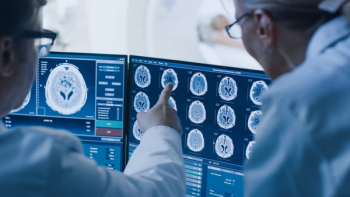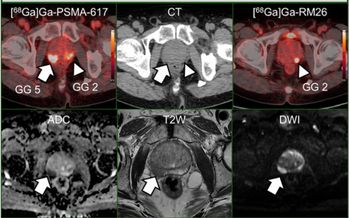
Toshiba celebrates commercial launch of Atlas MR
Toshiba Medical Systems Europe is going toe-to-toe with the established high-end vendors at 1.5T during the International Society for Magnetic Resonance in Medicine meeting in Berlin. Its high-performance Vantage Atlas MR, shown several months earlier at the RSNA meeting as a work-in-progress, became a commercial reality with the first system installed and operating in March at a hospital in a Paris suburb and another more recently at an outpatient facility in Las Vegas.
Toshiba Medical Systems Europe is going toe-to-toe with the established high-end vendors at 1.5T during the International Society for Magnetic Resonance in Medicine meeting in Berlin. Its high-performance Vantage Atlas MR, shown several months earlier at the RSNA meeting as a work-in-progress, became a commercial reality with the first system installed and operating in March at a hospital in a Paris suburb and another more recently at an outpatient facility in Las Vegas.
Vantage Atlas makes the company a formidable competitor in the workhorse section of MR, with a system designed to compete not only in image quality but also in productivity. The 32-channel coil, which is integrated into the patient table, supports whole-body imaging.
But its design offers an advantage in patient comfort as well. The coils can be shunted from one end of the patient table to the other to allow feet-first entry into the bore. Such positioning is an advantage to the patient during lower body imaging, such as peripheral angiography, as the patient's head remains outside the magnet.
"When doing chest imaging or below, it is perfect," said Hans Baartman, project manager MRI for Toshiba Medical Systems Europe.
Toshiba has yet to enter the 3T market, but at the ISMRM meeting Baartman is talking up plans of getting there in the next 12 to 18 months, when its work-in-progress system is sufficiently evolved.
"We already have high homogeneity in the magnet but we want to bring it to market only after we have full capability and full applications," he said.
Newsletter
Stay at the forefront of radiology with the Diagnostic Imaging newsletter, delivering the latest news, clinical insights, and imaging advancements for today’s radiologists.













